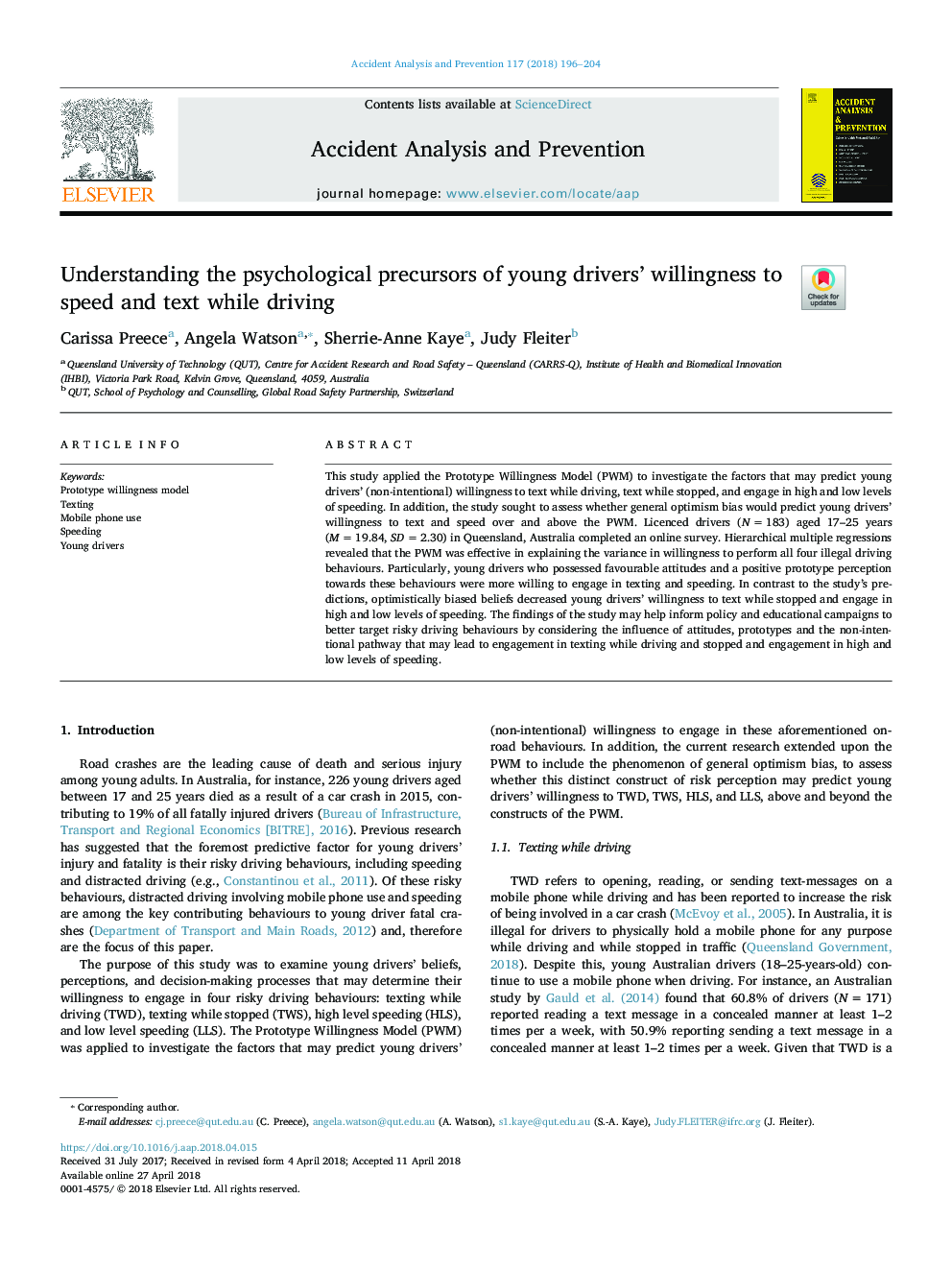| Article ID | Journal | Published Year | Pages | File Type |
|---|---|---|---|---|
| 6965112 | Accident Analysis & Prevention | 2018 | 9 Pages |
Abstract
This study applied the Prototype Willingness Model (PWM) to investigate the factors that may predict young drivers' (non-intentional) willingness to text while driving, text while stopped, and engage in high and low levels of speeding. In addition, the study sought to assess whether general optimism bias would predict young drivers' willingness to text and speed over and above the PWM. Licenced drivers (Nâ¯=â¯183) aged 17-25 years (Mâ¯=â¯19.84, SDâ¯=â¯2.30) in Queensland, Australia completed an online survey. Hierarchical multiple regressions revealed that the PWM was effective in explaining the variance in willingness to perform all four illegal driving behaviours. Particularly, young drivers who possessed favourable attitudes and a positive prototype perception towards these behaviours were more willing to engage in texting and speeding. In contrast to the study's predictions, optimistically biased beliefs decreased young drivers' willingness to text while stopped and engage in high and low levels of speeding. The findings of the study may help inform policy and educational campaigns to better target risky driving behaviours by considering the influence of attitudes, prototypes and the non-intentional pathway that may lead to engagement in texting while driving and stopped and engagement in high and low levels of speeding.
Related Topics
Physical Sciences and Engineering
Chemical Engineering
Chemical Health and Safety
Authors
Carissa Preece, Angela Watson, Sherrie-Anne Kaye, Judy Fleiter,
